American roots-music collective Dustbowl Revival has teamed with Tiny Porch Concerts to launch the Paramount Ranch Sonic Boom Festival, which will also feature performances from Grammy winners Rebirth Brass Band, Dom Flemons & many more. The special one-day music celebration—presented with support from the Santa Monica Mountains Fund and the National Park Service—will be held Oct. 15, high above Malibu, Calif., at the historic Paramount Ranch in Agoura Hills.
Devastated by the Woolsey Fire in 2018, the ranch—and its "Western Town" section—is a landmark of film and television history, having provided the set for countless classics over the decades, from The Cisco Kid to Dr. Quinn Medicine Woman and Westworld. The proceeds from Sonic Boom Festival will go toward restoring and rebuilding Paramount Ranch.
The festival—a one-of-a-kind event curated and hosted by Dustbowl Revival—is an idea the band has been working toward for a long time, and their excitement at finally making it happen is palpable. They had already thrown five wildly successful virtual streaming Sway-At-Home festivals during the pandemic, featuring more than 30 artists and generating 250,000 views worldwide. "Sway-At-Home made us want to bring the magic of a roots-music festival to L.A. for real," Dustbowl frontman Z. Lupetin says. "Now, with Sonic Boom, a big dream is coming true. After planning and dreaming about this for years, we are finally launching our own music fest!"
In addition to the festival's impressive musical headliners—and the soon-to-be-announced extended lineup of performers—Sonic Boom attendees will also be able to enjoy local craft vendors, food trucks and unique jamming experiences throughout the festival grounds.
Doors open at 11 a.m. on Oct. 15, and the music begins at high noon. General admission passes are $45. A beer-and-wine tasting package is also available for $85 and includes parking, admission to the festival and access to the beer and wine tasting corral from 3-5 p.m. Children's tickets (ages 4-12) are $20, and admission is free for children under 4.
Tickets for the Paramount Ranch Sonic Boom Festival are available here.
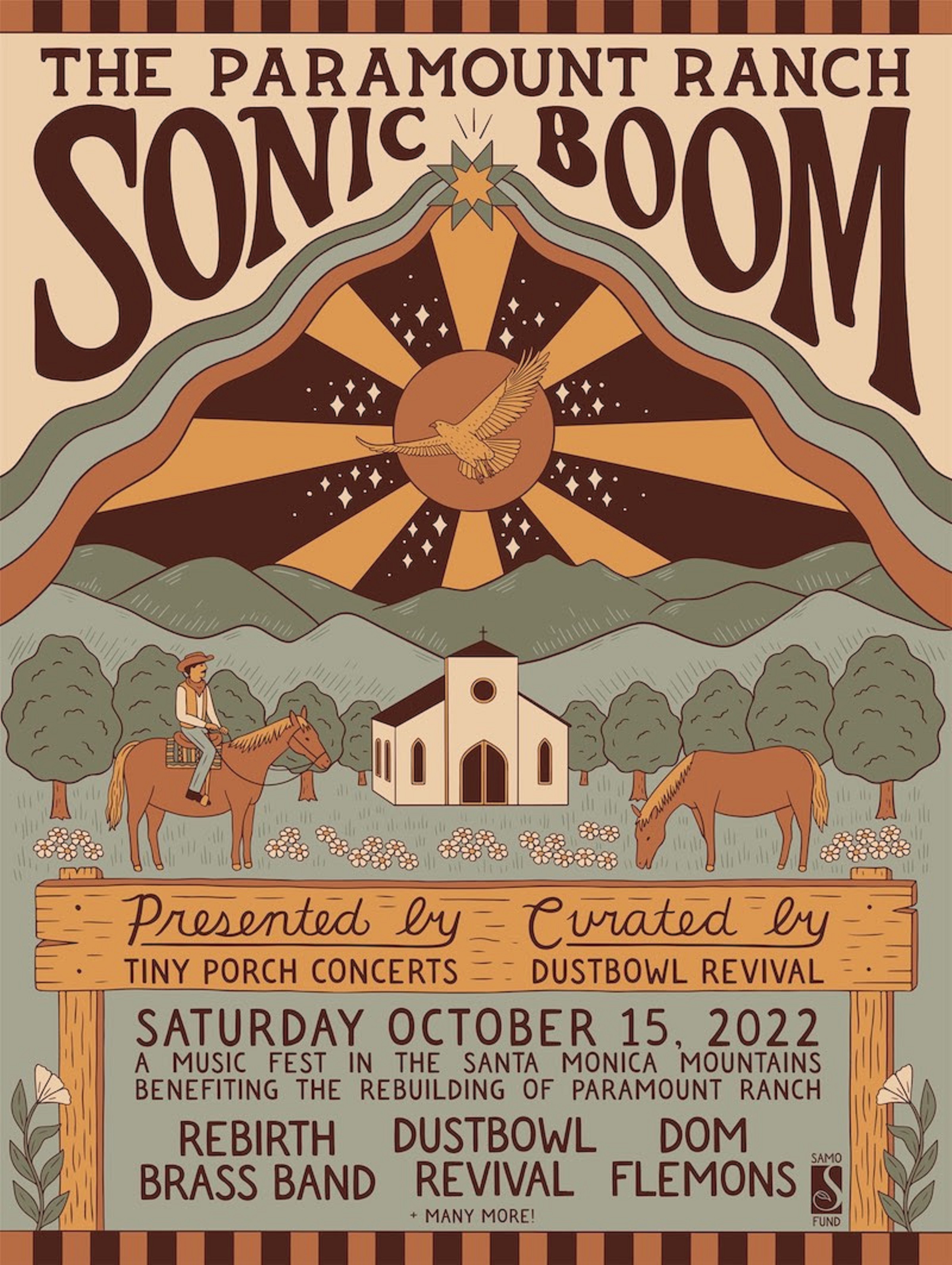
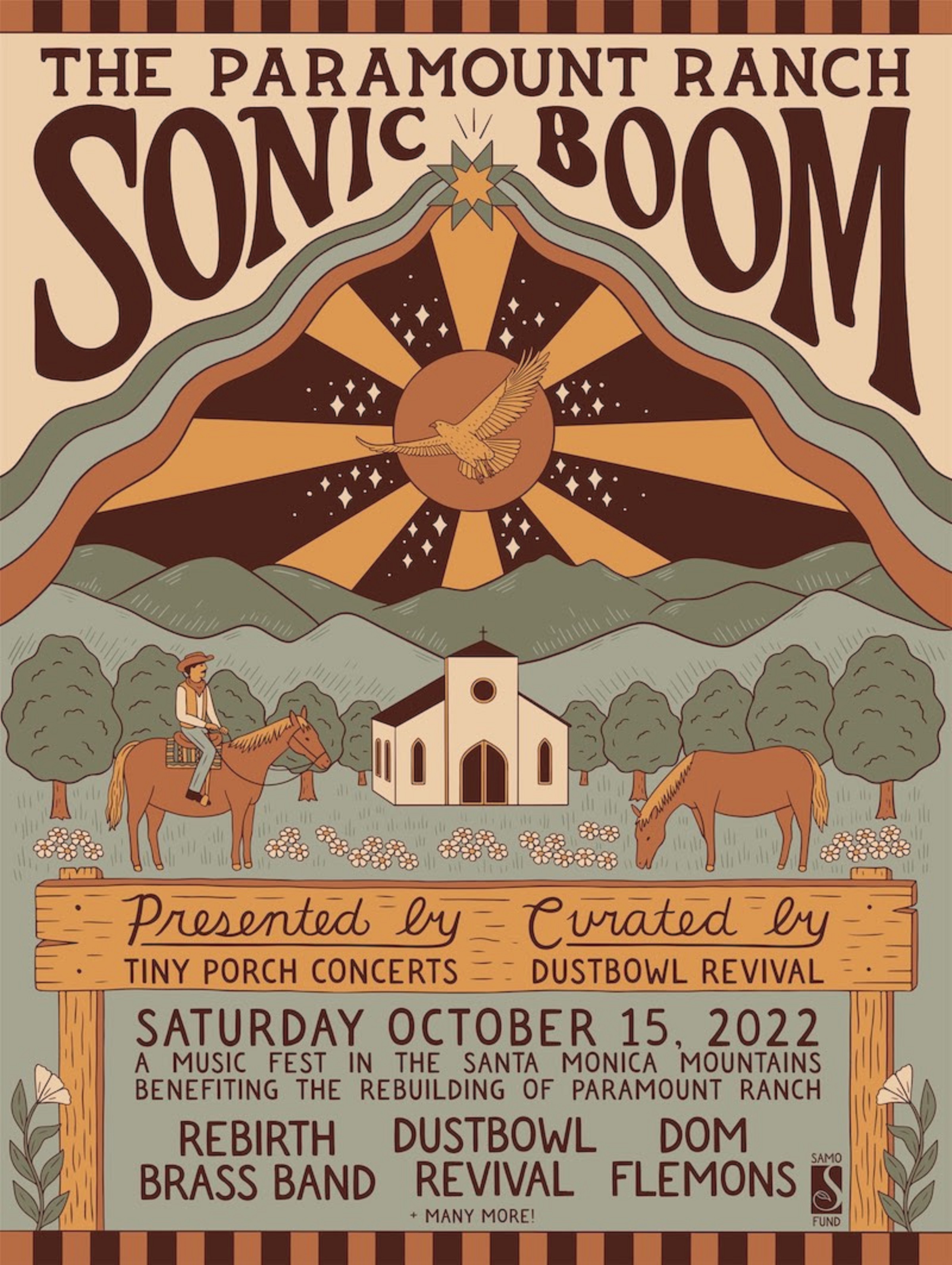
American roots-music collective Dustbowl Revival has teamed with Tiny Porch Concerts to launch the Paramount Ranch Sonic Boom Festival, which will also feature performances from Grammy winners Rebirth Brass Band, Dom Flemons & many more. The special one-day music celebration—presented with support from the Santa Monica Mountains Fund and the National Park Service—will be held Oct. 15, high above Malibu, Calif., at the historic Paramount Ranch in Agoura Hills.
Devastated by the Woolsey Fire in 2018, the ranch—and its "Western Town" section—is a landmark of film and television history, having provided the set for countless classics over the decades, from The Cisco Kid to Dr. Quinn Medicine Woman and Westworld. The proceeds from Sonic Boom Festival will go toward restoring and rebuilding Paramount Ranch.
The festival—a one-of-a-kind event curated and hosted by Dustbowl Revival—is an idea the band has been working toward for a long time, and their excitement at finally making it happen is palpable. They had already thrown five wildly successful virtual streaming Sway-At-Home festivals during the pandemic, featuring more than 30 artists and generating 250,000 views worldwide. "Sway-At-Home made us want to bring the magic of a roots-music festival to L.A. for real," Dustbowl frontman Z. Lupetin says. "Now, with Sonic Boom, a big dream is coming true. After planning and dreaming about this for years, we are finally launching our own music fest!"
In addition to the festival's impressive musical headliners—and the soon-to-be-announced extended lineup of performers—Sonic Boom attendees will also be able to enjoy local craft vendors, food trucks and unique jamming experiences throughout the festival grounds.
Doors open at 11 a.m. on Oct. 15, and the music begins at high noon. General admission passes are $45. A beer-and-wine tasting package is also available for $85 and includes parking, admission to the festival and access to the beer and wine tasting corral from 3-5 p.m. Children's tickets (ages 4-12) are $20, and admission is free for children under 4.
Tickets for the Paramount Ranch Sonic Boom Festival are available here.
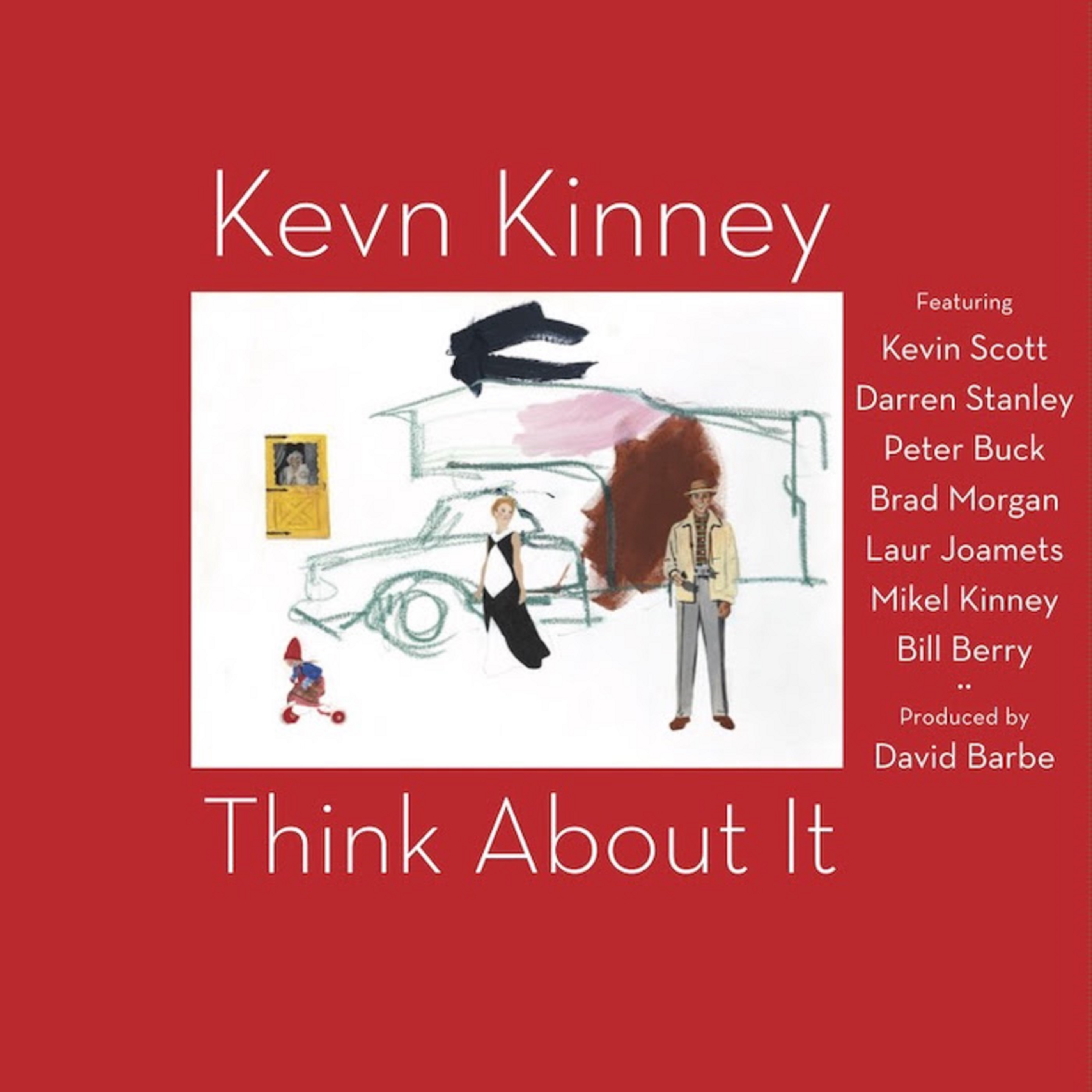
Drivin N Cryin frontman Kevn Kinney has announced his first solo record in more than a decade, and his first vinyl since 1990’s MacDougal Blues, set for a Dec. 9 release. Featuring R.E.M. co-founders Peter Buck and Bill Berry, as well as Brad Morgan of Drive-ByTruckers, Laur Joamets (Drivin N Cryin, Midland, Sturgill Simpson) and more, the star-studded Think About It has its roots in the introspective solitude of the pandemic, and also the passing of Kinney’s old friend, the iconic oddball musical / improvisational genius and lighting-rod philosopher Col. Bruce Hampton.
Recorded in indie-music mecca Athens, Ga., and helmed by ex-Sugar bassist and sought-after producer/engineer David Barbe (Drive-By Truckers, Lee Bains, Son Volt), the album showcases just about everything Kinney excels at, while also revealing some new facets of an artist who never stops reflecting, evolving and chasing his muse. There’s downhome alt-country and Americana (“Half Mast,” “Close the Door”); creepy, forlorn folk (“Catching Up to Myself”); chiming, hook-heavy jangle rock (“Scarlet Butterfly,” “Stop Look Listen Think”); finger-snapping beatnik jazz and spoken word (“Think About It,” “Shapeshifter Grifter,” “Never the Twain Shall Meet”); as well as some noticeably fresh turns with the almost proggy, flute-anchored trad folk of “Down in The City” and the gorgeous, string-laden torch song “Wishes.”
“When Col. Bruce died [back in 2017], I had the idea of taking a different approach, having all these different styles of musicians play with me—something, in the spirit of Bruce, that was a little more out there,” Kinney says. “I really loved his bass player Kevin Scott [The Pharaoh Gummit] and his drummer Darren Stanley [The Madrid Express, Jimmy Herring, Larkin Poe], who are these really accomplished jazz guys. So I had them in mind, and I also really wanted to go into the studio with David Barbe again, who I’d worked with back in 2004 on a project called the Sun Tangled Angel Revival, and who had been an engineer on MacDougal Blues. The idea was to do something a little more spoken word, singing in a lower register than usual for some of it, and using words to paint these picturesque landscapes. I didn't want to fill in all the spaces; I wanted to have a lot more air for things to grow from.”
The sessions for Think About It began a few years later, in January of 2020, at Barbe’s Chase Park Transduction Studios. Over time, the album would evolve into two unique sides with distinct sets of musicians coloring each—the first with an acoustic, brushed drums, standup-bass and spoken-word slant, and the second with more of an electric full-band rock & roll vibe. The side-one crew was anchored by the rhythm section of Scott and Stanley; side two by Morgan on drums and Barbe on bass with Buck providing instantly identifiable guitar lines on his classic Rickenbacker 6- and 12-strings, as well as some heady, atmospheric ebow. And Berry memorably took over on kit and percussion for the dynamic “Stop Look Listen Think,” also offering key arrangement advice on several other tracks, in particular, the subtly complex “Half Mast.” Through it all, the record’s two halves and varied genre explorations are threaded together gently by Kinney’s singular vocals and stream-consciousness lyrics, Joamets’ inventive guitar and pedal-steel playing and Barbe’s astute musical direction and sonic expertise.
Given that the sessions spilled over well into the pandemic, much of the record was made with the musicians coming in one at a time, working isolated from each other in different rooms, or (in Joamets’ case) contributing parts remotely. The solitary vibe of quarantine ended up having a major impact not just on the recording process, but on the thematic content of the songs and the idea of the album as a whole. “It was of course a difficult time, but also an interesting time to make a record, “Kinney says. “We ended up working with a lot of amazing musicians who were available locally in Athens and Atlanta, and the situation made it easy for David and I to focus on the music, since there weren’t friends and guests dropping in all the time. I really appreciated that aspect of it.”
The title Think About It is borne of covid-lockdown self-reflection, but it goes beyond that, the record offering alternately abstract and pointed critiques of modern instant-gratification social-media and cell-phone culture, where hyper-connected people clutter their lives with digital detritus until there’s no space left to wonder or dream. “It's a very introspective and lonely record, and a very personal record for me,” Kinney says. “Really, it’s a record for people to listen to by themselves. There's a lot of longing and thinking in it. I grew up in a version of America and the world before even answering machines or Star 69. The album expresses this desire to have time to actually ponder and reflect—like, give me a minute, let me think about it.”
“Wishes”—a song Kinney says is dedicated to vagabond truck drivers, sales people and circus performers—tells the tale of a man behind the wheel, longing for home in the days when, if you wanted to communicate with your loved ones from the road, the only option was a payphone. “Back then,” Kinney says, “you had to embrace the loneliness a little more.”
Kinney’s new reinterpretation of Drivin N Cryin classic “The Innocent” as a slithering, dissonant lounge-lizard shuffle is a lonely song too—like you stumbled in the backdoor of David Lynch’s Twin Peaks Roadhouse at 4am to find a phantom band playing to the empty darkness while a solitary barback sweeps up broken glass. The haunting sound comes courtesy of Buck’s droning ebow and some properly spooky vibraphone from Kinney’s brother Mikel (who also contributes guitar on the record, and who has played fiddle on select Drivin N Cryin tracks over the years, including Mystery Road opener “Ain’t It Strange.”)
Speaking of Lounge Lizards, though, Think About It’s “Down in the City” is a nod to Kinney’s old buddy, the late Anton Fier, who played drums for that cult-legend NYC band, band and later became a close friend and collaborator of Kinney’s. “Down in the City” explores feeling alone in a crowd or a vast, bustling metropolis like New York (where the Milwaukee-born Kinney hung his hat for two decades before returning to Atlanta a few years ago, the city where he started Drivin N Cryin back in the mid 1980s).
Similar territory is mined on “Close the Door,” which features Joamets on slide guitar and plays like an acoustic outtake from Exile on Main Street. “I wrote ‘Close the Door’ way back when I was a young kid—it was probably one of the first songs I ever wrote,” Kinney says. “It's about a guy who lives in an apartment, a shut-in. Milwaukee used to have this thing called ‘mass for shut-ins,’ for people in the wintertime who never leave their apartment. It’s another big-city song where ‘there's a million around us, yet I see no one, a million around yet I’m all alone.’”
But the loneliness—as Think About It suggests—can be a positive thing, if approached with the right mindset. “I think a lot of people these days are afraid to be by themselves or to not be connected,” Kinney says. “I know Anton was a very solitary person, and my Mom is the same way; she doesn’t like a lot of interaction. Being alone is an important part of life. By default, I’m lonely a lot of the time, when I have those long drives on tour doing solo shows. All by myself, I load in, I do the show, go to the hotel by myself, drive home by myself. And I think when you embrace the loneliness, there can be enlightenment in that. And that idea is central to Think About It.
"The whole record is a Jim Jarmusch black-and-white soundtrack to being lonely, and just sitting on a park bench by yourself—all the conversations we have with ourselves while sitting alone waiting to do things, doing our best to be our best, and wondering, ‘Am I in touch with my ego? Am I in touch with who I think I am? With who I thought I was gonna be? Is this the payoff? Is the payoff coming? What even is that, and where do I stand in the world?”

The Pinkerton Raid—project of Durham, N.C., singer & guitarist Jesse James DeConto—has released the new music video for "Blood in My Eyes" via Flagpole Magazine. Starring two young ballet dancers, the video, DeConto told Flagpole, is an attempt to capture the physicality of the feeling of betrayal. "I had the idea that we should cast children," he says, "as a reminder that we’re all vulnerable and that none of us deserve to be treated badly."
"Processing a disintegrating friendship, 'Blood in My Eyes' specifically confronts the complexity of emotions that can surface when having a conflict with a loved one," Flagpole's Jessica Smith writes. "The song allows listeners to embrace vulnerability and ride out any ill-willed thoughts, with the hope of finding compassion for oneself and the other person by the end."
The song comes from The Pinkerton Raid's new album The Highway Moves the World (out now). The record and its songs—which have already been praised at outlets such as The Grateful Web, Under the Radar, American Songwriter, Shindig!, Americana UK, WUNC, Indy Week & more—delve into heady, atmospheric rock and folk, at once encompassing The Pinkerton Raid's distinct sonic personalities. And thematically, Highway explores the complexity of family relationships, with each song inspired by a different member of DeConto's family, imbuing the material with the kind of deep emotion reserved for only the closest of bonds.
“My parents raised us five siblings in New Hampshire," DeConto says, "and then I grew up, went to college, got married, had my first kid, spent three or four years back in New Hampshire after school, and moved down to North Carolina, expecting my second kid at the time. Essentially, the album's title track, ‘Highway Moves the World,’ is the story of how we all ended up together again—how my mom followed me and my kids, and how my four siblings all eventually came along, too. It’s a story that serves as a window into all these important family relationships in my life, which is something I get pretty deep into on the new record.”
Possibility permeates The Highway Moves the World, which was produced by David Wimbish of fellow North Carolina band The Collection and features 12 songs, each inspired by a different complicated human being, all of whom just so happen to be DeConto’s closest family members—as well as a couple longtime friends with the power to deliver either great joy & wonder or profound betrayal & disappointment. In other words, these characters are familiar stand-ins for the people loved by any of us.
DeConto recorded most of The Highway Moves the World on the brink of the pandemic (as January turned to February 2020) with bassist Jonathan DePue, drummer Scott McFarlane and guitarist Garrett Langebartels. Despite their album-release plans being delayed by covid lockdown, in 2020 they put out new single “Dream the Sun,” a paean to the pain of waiting. The song was also a tribute to Jesse’s sister Katie, her tireless work of arts advocacy, and the tattoo on her right shoulder, reminding her that through it all there is a sun—a source of warmth and light—even when all you feel and see is cold and dark.
The Highway Moves the World has its roots two decades ago in the DeContos’ leaky basement rehearsal space, where Jesse learned Beatles songs and started to examine his tribe’s own particular brand of woundedness as the 19-year-old eldest brother of five. “Basement Tapes”—a highlight of the new album— is a sparse, melodic remembrance of this time and the musical family’s origins.
The new album’s songs travel through forest legends and foreign lands, blackjack games and French bistros, photo albums and feminist awakenings, all serving as the scene-sets and props for human drama of the most genuine kind. By the end of the journey, the listener comes full circle to “Merseybeat,” with its garden parties, echoes of “Eleanor Rigby” and another Liverpool legend—Gerry Marsden of Gerry and the Pacemakers—showing up in the lyrics with a simple message: “Don’t walk alone.” Shindig! magazine called the song “a long-faded sound from a distant time and place … shimmering as if born anew.” Given Jesse’s origins playing The Beatles in that leaky basement, it’s a pretty good summary of the song, the new record and a career now five albums deep.
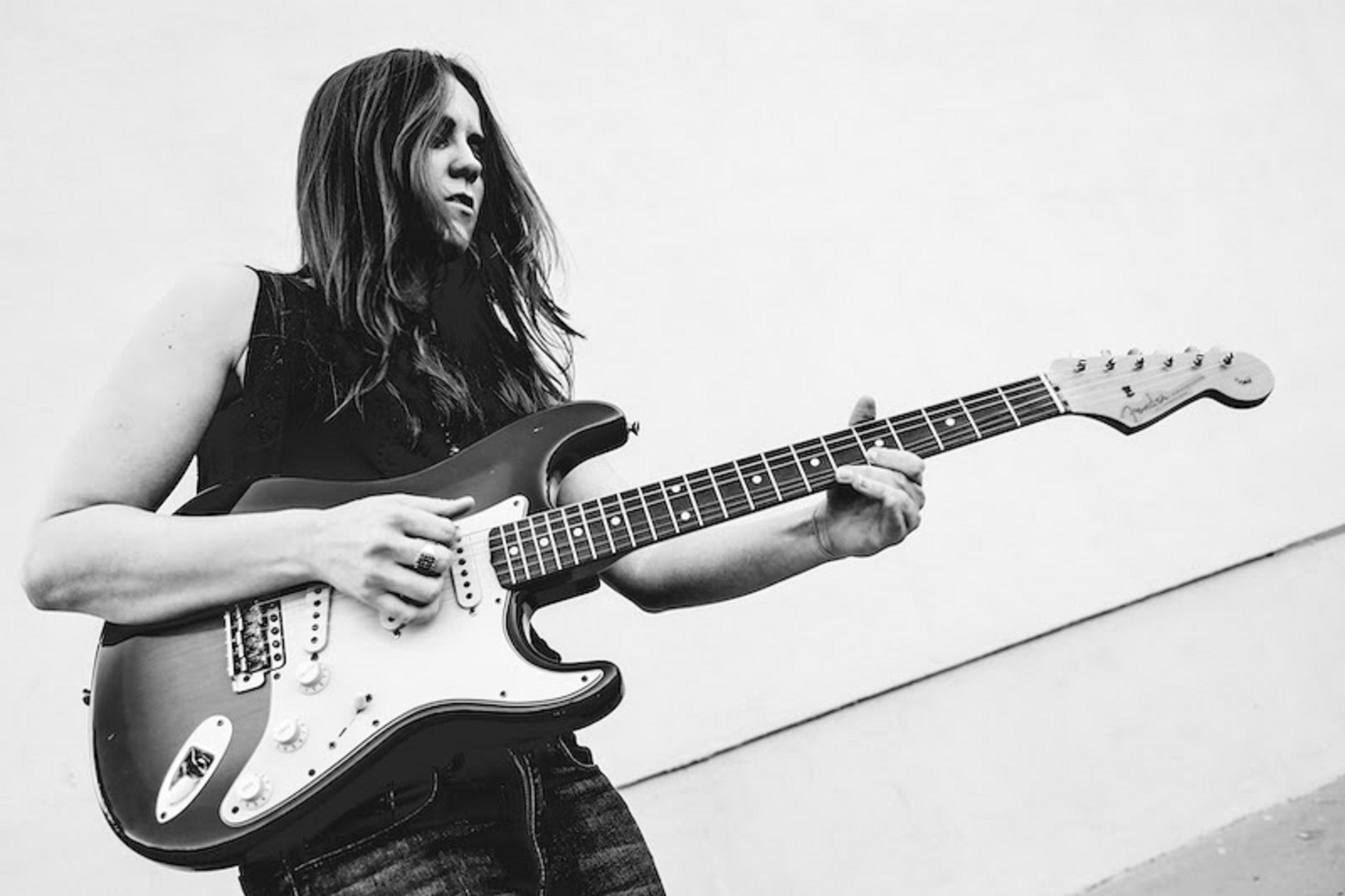
Revered guitarist Joe Bonamassa has added Angela Petrilli's new single "The Voices" to 4 of his personally curated Spotify playlists this week. The song is the title track of Petrilli's forthcoming debut solo EP, The Voices, out May 5. This comes in the wake of coverage at Grateful Web, Glide Magazine, It's Psychedelic Baby & more.
Back in 2019, Petrilli was one half of Los Angeles Americana duo Roses & Cigarettes, along with her bandmate, songwriting partner and best friend, Jenny Pagliaro. They’d already generated considerable buzz on the L.A. scene, opening for the likes of Jim Lauderdale, Luther Dickinson, The Record Company, Marc Broussard and Amanda Shires, and their impressive third album Echoes & Silence—recorded in the midst of Pagliaro’s treatment for Stage 4 breast cancer—seemed poised for a breakthrough. There was a tour in the works, and on March 25th of that year Rolling Stone named Roses & Cigarettes’ new single “Fast As I Can” one of its 10 Best Country Songs of the Week, writer Robert Crawford praising it as “an ode to living, laced with jangling guitars and bright harmonies.” But in a heartbreaking and tragic turn of events, Pagliaro—who had been fighting off cancer for years—passed away the very next day. She was just 35.
For Petrilli, losing her closest friend and collaborator, and the band they’d both worked so hard to build—right at the doorstep of success—was the most difficult experience of her life. “I didn’t pick up the guitar for at least a month or two after Jenny died,” she says. “I just couldn't do it. It was really hard to listen to or play music. I needed time. I needed to get some perspective, to say goodbye to that part of my life that was gone, and also to figure out what my life was going to look like—and sound like—going forward.”
So for the better part of a year, the grieving Petrilli left behind L.A. and set out across the world. She traveled to Nashville, New York, Paris and Italy, eventually making it as far as Australia. Along the way, she spent a lot of time on the ocean, where she was able to find some peace and clarity. As she began to heal, she could feel her muse calling once again. “I really started to miss playing music,” Petrilli says.
Finally back in L.A. after a long sabbatical, she reached out to some musician friends and booked a bar gig under the name The Petrilli Players. The idea was to shake off the cobwebs, play some covers and have a good time. “We did the show, and it was so much fun,” Petrilli says. “It became clear to me how much I still needed to do this.”
With a reinvigorated sense of purpose, and a band of simpatico players—Brett Grossman on bass, Stephen Haaker on drums, Matt Lomeo on harmonica & backing vocals, Bobby Victor on keys, and Vic Vanacore III on percussion—Petrilli was inspired to start writing again. After several months playing shows around Los Angeles (including opening spots for Billy Bob Thornton & the Boxmasters, The Immediate Family, and a performance at Joe Bonamassa’s 3rd Annual Stream-a-thon concert), the new songs felt studio-ready, and Petrilli booked a session at Hollywood’s legendary Sunset Sound.
“There’s so much history at Sunset,” Petrilli says. “It was important to me to be in the same room where The Rolling Stones, Led Zeppelin, The Doors, Janis Joplin, Van Halen and Ray LaMontagne all made records. Walking in, you feel that mojo—that foundation that's been set by the musicians who came before you. While we were there making The Voices, we felt like we were another brick in that foundation.”
Working at peak efficiency with well-rehearsed material, Petrilli & the Players tracked live at Sunset Sound, cutting five songs in one day. Bassist Grossman and drummer Haaker co-produced the EP with Petrilli, with Geoff Neal (The Black Keys, Heart, Metallica) engineering. “I knew going in that it would be a good mix of people,” Petrilli says. “Some of them I’ve known 10 or more years, and everybody has a very similar mindset. They're all fantastic musicians, team players, and the communication between us was flawless. I feel like we really captured the band’s onstage energy.”
Petrilli knocked out all of her guitar parts at Sunset Sound, using her 2013 Gibson Custom Shop R9 1959 reissue Les Paul, a 2012 Custom Shop 1958 reissue Les Paul Junior (a gift from a generous fan), a 1998 American Deluxe Strat with Fishman Fluence pickups, and a Fender Brown Derby resonator. For amps, she went through a Mesa Boogie Fillmore 25 for dirty tones, a Fender Vibroverb with a JBL E130 speaker for clean, and a Supro for the more washy tremolo textures.
The following day, sessions resumed at The Vanguard in North Hollywood, with Vanacore adding additional percussion. A few weeks later, Lomeo, Jessica Mahon & Phoebe Crenshaw laid down backing vocals. The finishing touches—including Petrilli’s lead vocals and some inspired sax lines from veteran musician Paulie Cerra (Joe Bonamassa, Keb Mo)—were recorded at Grossman’s studio, Cosmic Voyager.
The Voices represents significant musical growth for Petrilli—at once, it’s her debut as a solo artist, band leader and lead vocalist. The EP begins with an ominous intensity as if to herald her arrival, droning organ seeping out like blood over the languid yet insistent drum beat of “Red River.” The song’s haunting slide riff finds Petrilli channeling Robert Johnson via Jimmy Page, tracing a ghostly line from the Mississippi Delta to late-’60s London to Sunset Sound, while her vocals rise up from the ocean depths like a siren possessed.
The EP’s title track is another gorgeously meandering launch pad for the band’s live sets, the album version ebbing and flowing like an open-ended “Dark Star”-esque Grateful Dead jam, but delivered with a gritty soulfulness worthy of The Black Crowes. As its name implies, “The Voices” is a musical and philosophical conversation, illustrated by the animated call-and-response between Petrilli’s ripping guitar leads and Lomeo’s wailing blues harp.
“With this EP, I really wanted to write from perspectives that weren't necessarily my own,” Petrilli says. “Things I've observed with friends or watched on the news. ‘The Voices’ comes from having that conflicting internal conversation with the optimistic side of the ego versus the side that's always worried the world is ending, that everything is bad. We all have that conversation with the little demon and angel on each shoulder.”
The horn-anchored “High Roller” and instrumental showpiece “Slapjack” are hard-grooving modern updates on Meters-style New Orleans funk filtered through Petrilli’s native SoCal breeziness. Throughout both, she delivers the kind of slippery double-stop guitar hooks that would make Stax legend Steve Cropper proud.
Bringing The Voices home is “Ghost Inside a Frame,” a sighing, heartfelt, and emotionally potent nod to Petrilli’s beloved Roses & Cigarettes bandmate. “Right after Jenny died,” she says, “I had a conversation with my Mom, who also lost a close friend at a young age. She said the weirdest part is when you look back at pictures—you change, but they look the same. I thought, ‘What a beautiful and interesting perspective for a song.’ I wrote the idea in my notebook, and tried coming back to it many times, but nothing clicked. I’d write something and think it was too cheesy, or I wouldn’t connect with it. I refused to force it, though. I don’t like to force things.”
One afternoon in May last year, Petrilli was in Austin, Texas. She wasn't up to very much—just sitting around watching one of those bad dating shows on Netflix—when she noticed her arm start to twitch. She hadn’t been planning on writing anything, but she opened herself to the moment, got out her notebook, and the words began to pour out. “It was like something went through me and then it left—I can't explain it,” Petrilli says. “That song was given to me. Truly given to me. It’s incredibly honest and vulnerable, and even though it came from a very personal experience, I think it taps into something universal.”
Reflecting on the events of her life over the past few years, and the ways she’s evolved as an artist, singer and songwriter while making The Voices, Petrilli says that, above all, her journey has been about finding and maintaining an authentic voice.
“I just really wanted to be myself on this EP,” she says. “I was really meticulous about saying exactly what I meant,’ whether in a lyric or the way I sang or played something—even the voicing of a chord. I was able to explore a new side of myself that I hadn’t been in touch with before. With grief, I feel like you never move on, you just move forward from it. These songs celebrate the joy and fragility of life. To share space with like-minded musicians, and create something that’s unapologetically me, has been a deeply profound experience as I embark upon this next phase.”

After a four-year hiatus following the death of her best friend & bandmate Jenny Pagliaro (who passed away from breast cancer in 2019 at age 35), Angela Petrilli returns to music with her new debut solo EP, The Voices, out today. The Voices and its songs have already garnered praise from Rolling Stone, The Grateful Web, Glide Magazine, blues-rock guitarist Joe Bonamassa, It's Psychedelic Baby, Roughstock, Americana UK and many more. Petrilli was also featured in an hourlong interview with the Talking Blues podcast, and has an upcoming print feature in Guitar Player magazine.
Back in 2019, Petrilli was one half of Los Angeles Americana duo Roses & Cigarettes, along with songwriting partner Pagliaro. They’d already generated considerable buzz on the L.A. scene, opening for the likes of Jim Lauderdale, Elizabeth Cook, Luther Dickinson, The Record Company, Marc Broussard and Amanda Shires, and their impressive third album Echoes & Silence—recorded in the midst of Pagliaro’s treatment for Stage 4 breast cancer—seemed poised for a breakthrough. There was a tour in the works, and on March 25th of that year Rolling Stone named Roses & Cigarettes’ new single “Fast As I Can” one of its 10 Best Country Songs of the Week, writer Robert Crawford praising it as “an ode to living, laced with jangling guitars and bright harmonies.” But in a heartbreaking and tragic turn of events, Pagliaro—who had been fighting off cancer for years—passed away the very next day.
For Petrilli, losing her closest friend and collaborator, and the band they’d both worked so hard to build—right at the doorstep of success—was the most difficult experience of her life. “I didn’t pick up the guitar for at least a month or two after Jenny died,” she says. “I just couldn't do it. It was really hard to listen to or play music. I needed time. I needed to get some perspective, to say goodbye to that part of my life that was gone, and also to figure out what my life was going to look like—and sound like—going forward.”
So for the better part of a year, the grieving Petrilli left behind L.A. and set out across the world. She traveled to Nashville, New York, Paris and Italy, eventually making it as far as Australia. Along the way, she spent a lot of time on the ocean, where she was able to find some peace and clarity. As she began to heal, she could feel her muse calling once again. “I really started to miss playing music,” Petrilli says.
Finally back in L.A. after a long sabbatical, she reached out to some musician friends and booked a bar gig under the name The Petrilli Players. The idea was to shake off the cobwebs, play some covers and have a good time. “We did the show, and it was so much fun,” Petrilli says. “It became clear to me how much I still needed to do this.”
With a reinvigorated sense of purpose, and a band of simpatico players—Brett Grossman on bass, Stephen Haaker on drums, Matt Lomeo on harmonica & backing vocals, Bobby Victor on keys, and Vic Vanacore III on percussion—Petrilli was inspired to start writing again. After several months playing shows around Los Angeles (including opening spots for Billy Bob Thornton & the Boxmasters, The Immediate Family, and a performance at Joe Bonamassa’s 3rd Annual Stream-a-thon concert), the new songs felt studio-ready, and Petrilli booked a session at Hollywood’s legendary Sunset Sound.
“There’s so much history at Sunset,” Petrilli says. “It was important to me to be in the same room where The Rolling Stones, Led Zeppelin, The Doors, Janis Joplin, Van Halen and Ray LaMontagne all made records. Walking in, you feel that mojo—that foundation that's been set by the musicians who came before you. While we were there making The Voices, we felt like we were another brick in that foundation.”
Working at peak efficiency with well-rehearsed material, Petrilli & the Players tracked live at Sunset Sound, cutting five songs in one day. Bassist Grossman and drummer Haaker co-produced the EP with Petrilli, with Geoff Neal (The Black Keys, Heart, Metallica) engineering. “I knew going in that it would be a good mix of people,” Petrilli says. “Some of them I’ve known 10 or more years, and everybody has a very similar mindset. They're all fantastic musicians, team players, and the communication between us was flawless. I feel like we really captured the band’s onstage energy.”
Petrilli knocked out all of her guitar parts at Sunset Sound, using her 2013 Gibson Custom Shop R9 1959 reissue Les Paul, a 2012 Custom Shop 1958 reissue Les Paul Junior (a gift from a generous fan), a 1998 American Deluxe Strat with Fishman Fluence pickups, and a Fender Brown Derby resonator. For amps, she went through a Mesa Boogie Fillmore 25 for dirty tones, a Fender Vibroverb with a JBL E130 speaker for clean, and a Supro for the more washy tremolo textures.
The following day, sessions resumed at The Vanguard in North Hollywood, with Vanacore adding additional percussion. A few weeks later, Lomeo, Jessica Mahon & Phoebe Crenshaw laid down backing vocals. The finishing touches—including Petrilli’s lead vocals and some inspired sax lines from veteran musician Paulie Cerra (Joe Bonamassa, Keb Mo)—were recorded at Grossman’s studio, Cosmic Voyager.
The Voices represents significant musical growth for Petrilli—at once, it’s her debut as a solo artist, band leader and lead vocalist. The EP begins with an ominous intensity as if to herald her arrival, droning organ seeping out like blood over the languid yet insistent drum beat of “Red River.” The song’s haunting slide riff finds Petrilli channeling Robert Johnson via Jimmy Page, tracing a ghostly line from the Mississippi Delta to late-’60s London to Sunset Sound, while her vocals rise up from the ocean depths like a siren possessed.
The EP’s title track is another gorgeously meandering launch pad for the band’s live sets, the album version ebbing and flowing like an open-ended “Dark Star”-esque Grateful Dead jam, but delivered with a gritty soulfulness worthy of The Black Crowes. As its name implies, “The Voices” is a musical and philosophical conversation, illustrated by the animated call-and-response between Petrilli’s ripping guitar leads and Lomeo’s wailing blues harp.
“With this EP, I really wanted to write from perspectives that weren't necessarily my own,” Petrilli says. “Things I've observed with friends or watched on the news. ‘The Voices’ comes from having that conflicting internal conversation with the optimistic side of the ego versus the side that's always worried the world is ending, that everything is bad. We all have that conversation with the little demon and angel on each shoulder.”
The horn-anchored “High Roller” and instrumental showpiece “Slapjack” are hard-grooving modern updates on Meters-style New Orleans funk filtered through Petrilli’s native SoCal breeziness. Throughout both, she delivers the kind of slippery double-stop guitar hooks that would make Stax legend Steve Cropper proud.
Bringing The Voices home is “Ghost Inside a Frame,” a sighing, heartfelt, and emotionally potent nod to Petrilli’s beloved Roses & Cigarettes bandmate. “Right after Jenny died,” she says, “I had a conversation with my Mom, who also lost a close friend at a young age. She said the weirdest part is when you look back at pictures—you change, but they look the same. I thought, ‘What a beautiful and interesting perspective for a song.’ I wrote the idea in my notebook, and tried coming back to it many times, but nothing clicked. I’d write something and think it was too cheesy, or I wouldn’t connect with it. I refused to force it, though. I don’t like to force things.”
One afternoon in May last year, Petrilli was in Austin, Texas. She wasn't up to very much—just sitting around watching one of those bad dating shows on Netflix—when she noticed her arm start to twitch. She hadn’t been planning on writing anything, but she opened herself to the moment, got out her notebook, and the words began to pour out. “It was like something went through me and then it left—I can't explain it,” Petrilli says. “That song was given to me. Truly given to me. It’s incredibly honest and vulnerable, and even though it came from a very personal experience, I think it taps into something universal.”
Reflecting on the events of her life over the past few years, and the ways she’s evolved as an artist, singer and songwriter while making The Voices, Petrilli says that, above all, her journey has been about finding and maintaining an authentic voice.
“I just really wanted to be myself on this EP,” she says. “I was really meticulous about saying exactly what I meant,’ whether in a lyric or the way I sang or played something—even the voicing of a chord. I was able to explore a new side of myself that I hadn’t been in touch with before. With grief, I feel like you never move on, you just move forward from it. These songs celebrate the joy and fragility of life. To share space with like-minded musicians, and create something that’s unapologetically me, has been a deeply profound experience as I embark upon this next phase.”

Angela Petrilli is featured in the new July issue of Guitar Player (Pink Floyd / David Gilmour cover). "Petrilli comes on like a true original," they write, "delivering smart, tough and soulful blues rock that brims with blood-pounding guitar playing on a set of songs that artfully examines the highs and lows of the human spirit without being obvious or overdrawn."
After a four-year hiatus following the death of her best friend & bandmate Jenny Pagliaro (who passed away from breast cancer in 2019 at age 35), Angela Petrilli returns to music with her new debut solo EP, The Voices, out now. The Voices and its songs have already garnered praise from Rolling Stone, The Grateful Web, Glide Magazine, blues-rock guitarist Joe Bonamassa, It's Psychedelic Baby, Ditty TV, Roughstock, Americana UK and many more. Petrilli was also featured in an hourlong interview with the Talking Blues podcast.
Back in 2019, Petrilli was one half of Los Angeles Americana duo Roses & Cigarettes, along with songwriting partner Pagliaro. They’d already generated considerable buzz on the L.A. scene, opening for the likes of Jim Lauderdale, Elizabeth Cook, Luther Dickinson, The Record Company, Marc Broussard and Amanda Shires, and their impressive third album Echoes & Silence—recorded in the midst of Pagliaro’s treatment for Stage 4 breast cancer—seemed poised for a breakthrough. There was a tour in the works, and on March 25th of that year Rolling Stone named Roses & Cigarettes’ new single “Fast As I Can” one of its 10 Best Country Songs of the Week, writer Robert Crawford praising it as “an ode to living, laced with jangling guitars and bright harmonies.” But in a heartbreaking and tragic turn of events, Pagliaro—who had been fighting off cancer for years—passed away the very next day.
For Petrilli, losing her closest friend and collaborator, and the band they’d both worked so hard to build—right at the doorstep of success—was the most difficult experience of her life. “I didn’t pick up the guitar for at least a month or two after Jenny died,” she says. “I just couldn't do it. It was really hard to listen to or play music. I needed time. I needed to get some perspective, to say goodbye to that part of my life that was gone, and also to figure out what my life was going to look like—and sound like—going forward.”
So for the better part of a year, the grieving Petrilli left behind L.A. and set out across the world. She traveled to Nashville, New York, Paris and Italy, eventually making it as far as Australia. Along the way, she spent a lot of time on the ocean, where she was able to find some peace and clarity. As she began to heal, she could feel her muse calling once again. “I really started to miss playing music,” Petrilli says.
Finally back in L.A. after a long sabbatical, she reached out to some musician friends and booked a bar gig under the name The Petrilli Players. The idea was to shake off the cobwebs, play some covers and have a good time. “We did the show, and it was so much fun,” Petrilli says. “It became clear to me how much I still needed to do this.”
With a reinvigorated sense of purpose, and a band of simpatico players—Brett Grossman on bass, Stephen Haaker on drums, Matt Lomeo on harmonica & backing vocals, Bobby Victor on keys, and Vic Vanacore III on percussion—Petrilli was inspired to start writing again. After several months playing shows around Los Angeles (including opening spots for Billy Bob Thornton & the Boxmasters, The Immediate Family, and a performance at Joe Bonamassa’s 3rd Annual Stream-a-thon concert), the new songs felt studio-ready, and Petrilli booked a session at Hollywood’s legendary Sunset Sound.
“There’s so much history at Sunset,” Petrilli says. “It was important to me to be in the same room where The Rolling Stones, Led Zeppelin, The Doors, Janis Joplin, Van Halen and Ray LaMontagne all made records. Walking in, you feel that mojo—that foundation that's been set by the musicians who came before you. While we were there making The Voices, we felt like we were another brick in that foundation.”
Working at peak efficiency with well-rehearsed material, Petrilli & the Players tracked live at Sunset Sound, cutting five songs in one day. Bassist Grossman and drummer Haaker co-produced the EP with Petrilli, with Geoff Neal (The Black Keys, Heart, Metallica) engineering. “I knew going in that it would be a good mix of people,” Petrilli says. “Some of them I’ve known 10 or more years, and everybody has a very similar mindset. They're all fantastic musicians, team players, and the communication between us was flawless. I feel like we really captured the band’s onstage energy.”
Petrilli knocked out all of her guitar parts at Sunset Sound, using her 2013 Gibson Custom Shop R9 1959 reissue Les Paul, a 2012 Custom Shop 1958 reissue Les Paul Junior (a gift from a generous fan), a 1998 American Deluxe Strat with Fishman Fluence pickups, and a Fender Brown Derby resonator. For amps, she went through a Mesa Boogie Fillmore 25 for dirty tones, a Fender Vibroverb with a JBL E130 speaker for clean, and a Supro for the more washy tremolo textures.
The following day, sessions resumed at The Vanguard in North Hollywood, with Vanacore adding additional percussion. A few weeks later, Lomeo, Jessica Mahon & Phoebe Crenshaw laid down backing vocals. The finishing touches—including Petrilli’s lead vocals and some inspired sax lines from veteran musician Paulie Cerra (Joe Bonamassa, Keb Mo)—were recorded at Grossman’s studio, Cosmic Voyager.
The Voices represents significant musical growth for Petrilli—at once, it’s her debut as a solo artist, band leader and lead vocalist. The EP begins with an ominous intensity as if to herald her arrival, droning organ seeping out like blood over the languid yet insistent drum beat of “Red River.” The song’s haunting slide riff finds Petrilli channeling Robert Johnson via Jimmy Page, tracing a ghostly line from the Mississippi Delta to late-’60s London to Sunset Sound, while her vocals rise up from the ocean depths like a siren possessed.
The EP’s title track is another gorgeously meandering launch pad for the band’s live sets, the album version ebbing and flowing like an open-ended “Dark Star”-esque Grateful Dead jam, but delivered with a gritty soulfulness worthy of The Black Crowes. As its name implies, “The Voices” is a musical and philosophical conversation, illustrated by the animated call-and-response between Petrilli’s ripping guitar leads and Lomeo’s wailing blues harp.
“With this EP, I really wanted to write from perspectives that weren't necessarily my own,” Petrilli says. “Things I've observed with friends or watched on the news. ‘The Voices’ comes from having that conflicting internal conversation with the optimistic side of the ego versus the side that's always worried the world is ending, that everything is bad. We all have that conversation with the little demon and angel on each shoulder.”
The horn-anchored “High Roller” and instrumental showpiece “Slapjack” are hard-grooving modern updates on Meters-style New Orleans funk filtered through Petrilli’s native SoCal breeziness. Throughout both, she delivers the kind of slippery double-stop guitar hooks that would make Stax legend Steve Cropper proud.
Bringing The Voices home is “Ghost Inside a Frame,” a sighing, heartfelt, and emotionally potent nod to Petrilli’s beloved Roses & Cigarettes bandmate. “Right after Jenny died,” she says, “I had a conversation with my Mom, who also lost a close friend at a young age. She said the weirdest part is when you look back at pictures—you change, but they look the same. I thought, ‘What a beautiful and interesting perspective for a song.’ I wrote the idea in my notebook, and tried coming back to it many times, but nothing clicked. I’d write something and think it was too cheesy, or I wouldn’t connect with it. I refused to force it, though. I don’t like to force things.”
One afternoon in May last year, Petrilli was in Austin, Texas. She wasn't up to very much—just sitting around watching one of those bad dating shows on Netflix—when she noticed her arm start to twitch. She hadn’t been planning on writing anything, but she opened herself to the moment, got out her notebook, and the words began to pour out. “It was like something went through me and then it left—I can't explain it,” Petrilli says. “That song was given to me. Truly given to me. It’s incredibly honest and vulnerable, and even though it came from a very personal experience, I think it taps into something universal.”
Reflecting on the events of her life over the past few years, and the ways she’s evolved as an artist, singer and songwriter while making The Voices, Petrilli says that, above all, her journey has been about finding and maintaining an authentic voice.
“I just really wanted to be myself on this EP,” she says. “I was really meticulous about saying exactly what I meant,’ whether in a lyric or the way I sang or played something—even the voicing of a chord. I was able to explore a new side of myself that I hadn’t been in touch with before. With grief, I feel like you never move on, you just move forward from it. These songs celebrate the joy and fragility of life. To share space with like-minded musicians, and create something that’s unapologetically me, has been a deeply profound experience as I embark upon this next phase.”
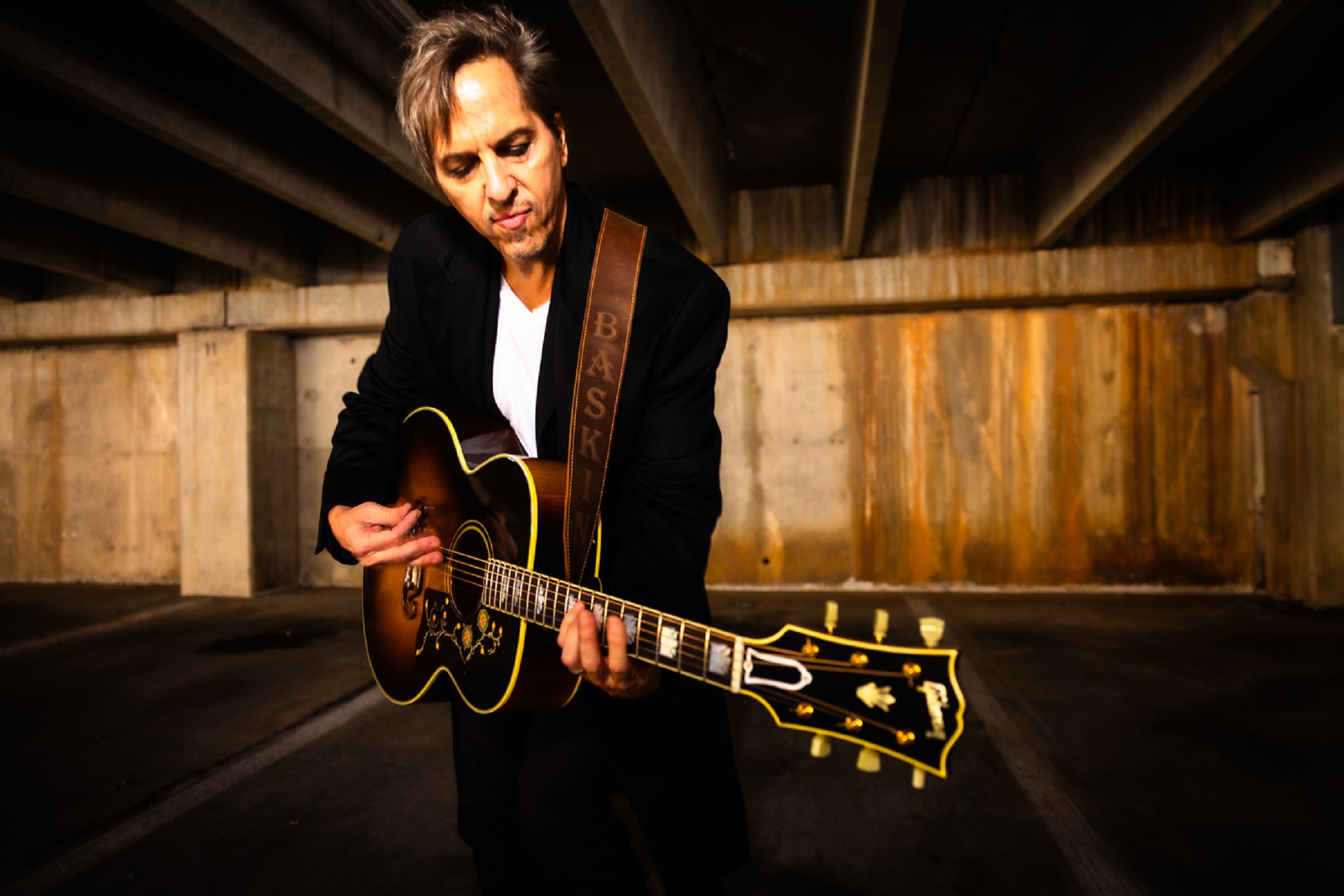
Steve Baskin and the Fourteens’ new album, Love Is Hard, is the kind of sophisticated, soulful statement of a record that comes only with decades of hard-earned experience—at life and love and music.
“Having been around the block a few times, Love Is Hard is a set of songs that brings a grownup perspective on love and relationships from just about every angle,” Baskin says. “It deals with marriage, family, community, losing a close friend, and our divided world.”
Musically, Love Is Hard dabbles in California country, blues, folk and roots rock, but at its core the record is built on a solid foundation of Baskin’s signature blue-eyed Americana soul, showcased by album highlights such as “I Believe in You,” “Do What You Wanna Do,” “And You Want War” and the album-opening title track. On these songs, Baskin brought in Atlanta’s FunkCake Horns to provide a potent blast of brass that’s as indebted to classic Memphis and Philly soul as it is to contemporaries JJ Grey & Mofro, Leon Bridges, Nathaniel Rateliff & the Night Sweats, St. Paul & the Broken Bones. Which all makes sense when you learn that a young Baskin cut his teeth on the road backing legendary soul artists such as Sam & Dave’s Sam Moore, Percy Sledge, Carla Thomas and The Shirelles.
“Back in the ’80s and ’90s, when I was really still just a kid, I was in this band in South Georgia, and it was one of the only good reading bands, so when all those old soul and R&B artists would come through, we were the band they would call. They’d pick us up in Valdosta, Ga., and we'd go to Jacksonville or Atlanta or wherever the gigs were, and be their backing band. Which made for a pretty solid musical education.”
A key ingredient that propels Love Is Hard is the chemistry between Baskin and his band, the Fourteens: guitarist Roger Brainard, backing vocalist Mary Gill, her husband drummer Geoff Gill, bassist Mark Sobus, and pedal-steel wizard Mark van Allen, whose credits include Blueground Undergrass, Guy Clark, Warren Haynes, Zac Brown Band, Leftover Salmon, Vassar Clements, Peter Rowan, Sugarland, the Indigo Girls and more.
“We have so much fun playing together,” Baskin says. “It's a good core group of people—some really different people who come from different places—but everybody loves each other, and there’s this super happy energy when we play.”
At the core of the synergy on display across Love Is Hard are Baskin’s decades-long relationships with Brainard and his mix man and co-producer Rich Herring—both of whom he’s known and played music with since he was just a teenager.
“I met Roger when I was 14,” Baskin says. “I used to walk across the street to the music store to look at guitars and Roger was the guitar guy at the shop. We go way back—I remember playing him the first song I ever wrote. About a decade ago, we reconnected and started writing and playing together again. He's just a phenomenal guitarist. And Rich, who co-produced the new record with me, we used to play in bands together in high school and college. He ended up in Nashville right after high school and has made his living as a session player and engineer. We’re very much of the same mind and really hear music the same way, so we’ve been making records together for a decade now.”
The sessions for Love Is Hard—Baskin’s fifth album—began at Lee Davis Studios in Maysville, Ga, a sleepy Southern town of less than 2,000 about 70 miles Northeast of Atlanta. There, in the large tracking room, the band promptly knocked out all the bass and drum parts, the keys (provided by studio owner Davis) and the horns. “We were doing a lot of shows with the band leading up to the record,” Baskin says, “so we were tight enough to be able to just walk in and nail the takes live. I think we cut five songs in four hours that first day.”
Next, the production shifted to Baskin’s Atlanta-based home studio, where the focus was on vocals, additional guitars and sweetening. “I really see Love Is Hard as an extension of my last record Mind Your Step,” the 2020 album that Baskin largely co-wrote with Brainard and recorded with Grammy-winning producer Mark Neill (The Black Keys, Charley Crockett, Old 97’s). The record garnered praise from Glide Magazine, Music Connection, Vents, Americana Highways and more.
In addition to The Fourteens, Love Is Hard also features co-producer / auxiliary guitarist Herring, engineer / keyboardist Davis, guest steel player Smith Curry (Taylor Swift, Merle Haggard, Willie Nelson), and guest organ player Barry Best, along with the FunkCake Horns.
Baskin’s new record is a musically diverse affair as it unfolds its thematic arc. “We Thought We Were Grown” evokes The Eagles circa 1974’s On the Border. It’s a ballad that looks back knowingly on the naivete of nascent love from the perspective of a couple that’s now been together for more years than they haven’t. “And You Want War”—a soulful, southern-fried swamp rocker with a riff worthy of Mountain’s Leslie West—explores the political divide in American families. And “The One Percent” serves up some New Riders of the Purple Sage-style twang while reminding us that—genetically speaking—us humans have 99 percent more in common than we don’t.
The folky, singer-songwriter turns of “Girl From Indiana” and “Give a Damn About Today” tip their hat to Gold-era Ryan Adams, the former a tribute to a departed friend who succumbed to depression, and the latter a carpe-diem anthem inspired by 9/11. “Devoted to You” is an autobiographical Stones / Faces-channeling roots rocker that recounts the struggles—and eventual joys—of unexpectedly becoming a young parent. And there’s a particularly breezy rendition of ’60s jangle-pop classic “Pleasant Valley Sunday,” a cover of Baskin’s childhood favorites The Monkees.
One of the album’s Americana-soul anchors, “Do What You Wanna Do” explores personal ethics to a snaky Muscle Shoals groove, while “I Believe In You”— a song borrowed from Baskin’s old Sam Moore bandmate Barry Best—deftly bridges the Northern / Southern soul gap between The Delfonics and Al Green. And the track that perhaps best sums up Baskin’s new album, title song “Love Is Hard” mines similar sonic territory, swathed in blankets of Hammond organ and punctuated by Brainard’s stinging B.B. King-reminiscent blues licks.
“The idea of the song ‘Love is Hard,’” Baskin says, “is that it's a lot easier to walk away from a relationship than to actually stay and make it work long-term. The falling in love part happens fast, but it’s the hard part that happens over the next 20 or 30 years that is the most satisfying and worthwhile.”
It’s a statement of devotion and purpose, for Baskin’s new record, for enduring love, and for a musical journey that seems to get sweeter with each subsequent release.
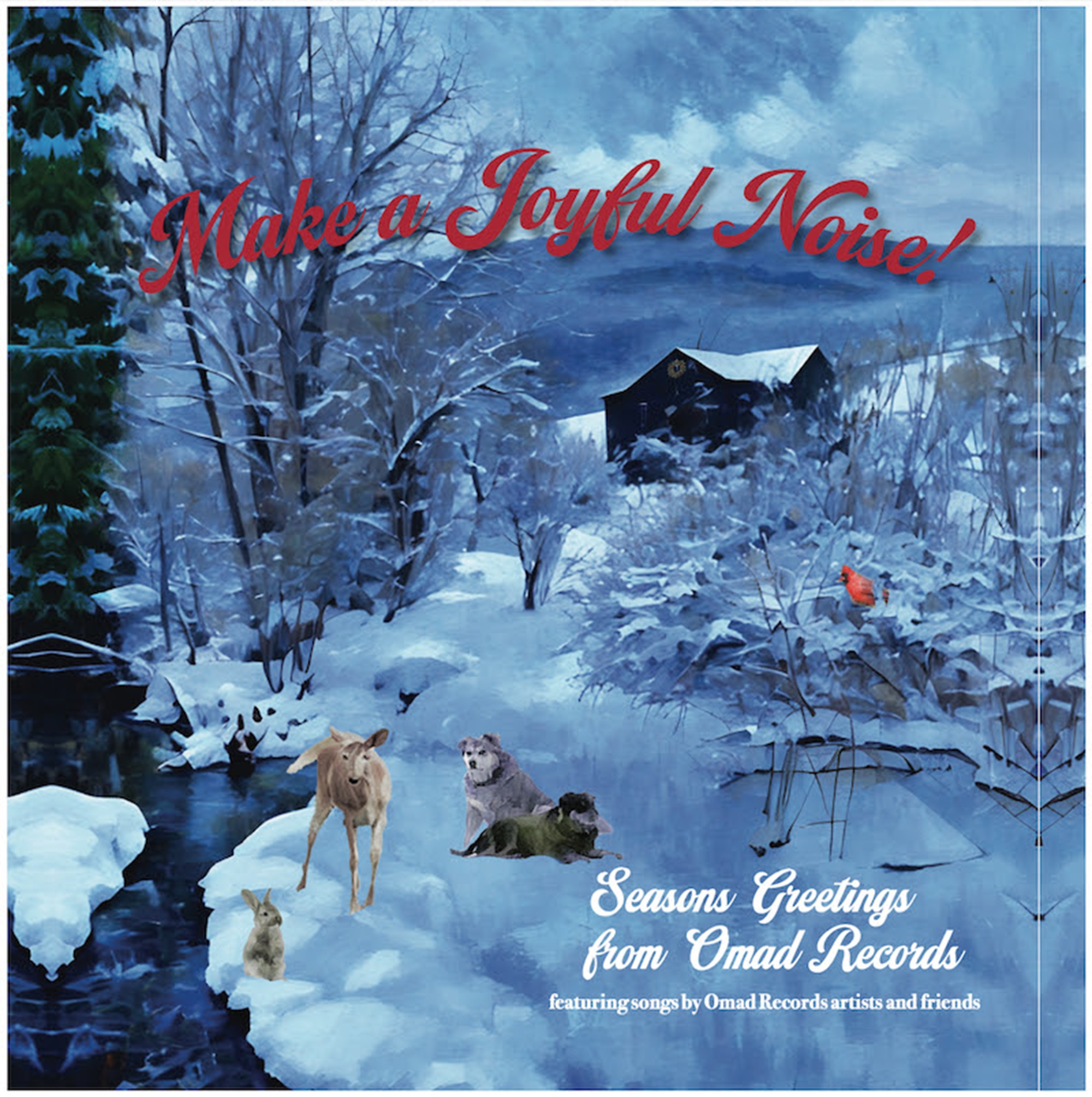
OMAD Records is excited to announce the release of Make a Joyful Noise, a festive new compilation of holiday tracks featuring a range of OMAD artists, including Moby Grape co-founder Peter Lewis and Academy Award-winning songwriter John DeNicola, out November 22, 2024. This unique collection captures the season’s heartfelt warmth with an eclectic mix of indie, alternative, folk, and soul sounds.
Featured Tracks:
- The Medics – “Parade” (Indie, Alternative)
- Peter Lewis ft. Arwen Lewis – “Baby So Beautiful” (Indie-Folk, Americana)
- The Sighs – “Almost Christmastime” (Indie, Power Pop)
- Robert Laroche – “On This Christmas Day” (Alt-Country, Folk-Rock, Americana)
- Zonder Kennedy – “Joyful Noise” (Retro Soul)
“Make a Joyful Noise explores the holidays through an array of emotions—joy, nostalgia, warmth, even bittersweet reflections,” says OMAD founder John DeNicola. “I invited our artists to express their seasonal sentiments, and the result is both personal and universal, sure to resonate with listeners.”
The compilation features 13 tracks from OMAD artists, each contributing a unique holiday perspective:
- Peter Lewis – Known for his legendary role in Moby Grape, Lewis offers the tender “Baby So Beautiful,” featuring his daughter Arwen Lewis.
- The Sighs – These power-pop pioneers deliver a Beatlesque charm with “Almost Christmastime.”
- Robert Laroche – His track “On This Christmas Day” brings alt-country warmth to the collection.
- Zonder Kennedy – Adds a retro-soul twist with “Joyful Noise,” showcasing his blues-rock background.
- The Medics – Their indie hit “Parade” mixes playful spirit with gritty guitar riffs.
- John DeNicola ft. Cassidy Ladden – DeNicola’s duet “At Christmastime” feels like a holiday classic from the moment you hear it.
The album also features fresh takes on beloved classics. Elizabeth and Jake’s jazzy medley of “The Christmas Song” and “The Christmas Waltz” offers a cozy, folky spin, while Arwen Lewis brings her signature style to “Let It Snow.”
Full Track Listing:
Elizabeth and Jake - “The Christmas Song” / “The Christmas Waltz”
John DeNicola ft. Cassidy Ladden - “At Christmastime”
Peter Lewis ft. Arwen Lewis - “Baby So Beautiful”
Robert Laroche - “On This Christmas Day”
Zonder Kennedy - “Joyful Noise”
The Sighs - “Almost Christmastime”
Arwen Lewis - “Let It Snow”
Tommy Pluta - “Christmas Time (Blues)”
Fovea - “What’s Christmas”
The Medics - “Parade”
Alan Zahn ft. Erica Leigh - “Homecoming”
Ordinary Madness - “Happy Christmas”
Rust Dust - “The Greatest Gift”
Fans of Make a Joyful Noise are encouraged to explore OMAD’s catalog, including Peter Lewis’ latest album Imagination, Arwen Lewis’ Under the Stars, Robert LaRoche’s Forevermore, and John DeNicola’s solo works including his upcoming album set for 2025.
About OMAD Records Founded by John DeNicola, OMAD Records nurtures artist-driven projects that push creative boundaries and celebrate musical diversity. With Make a Joyful Noise, OMAD continues to bring both fresh sounds and timeless artistry to the forefront, making this holiday release a must-have for music lovers.
For more information on OMAD Records and the artists on Make a Joyful Noise, visit www.omadrecords.com.
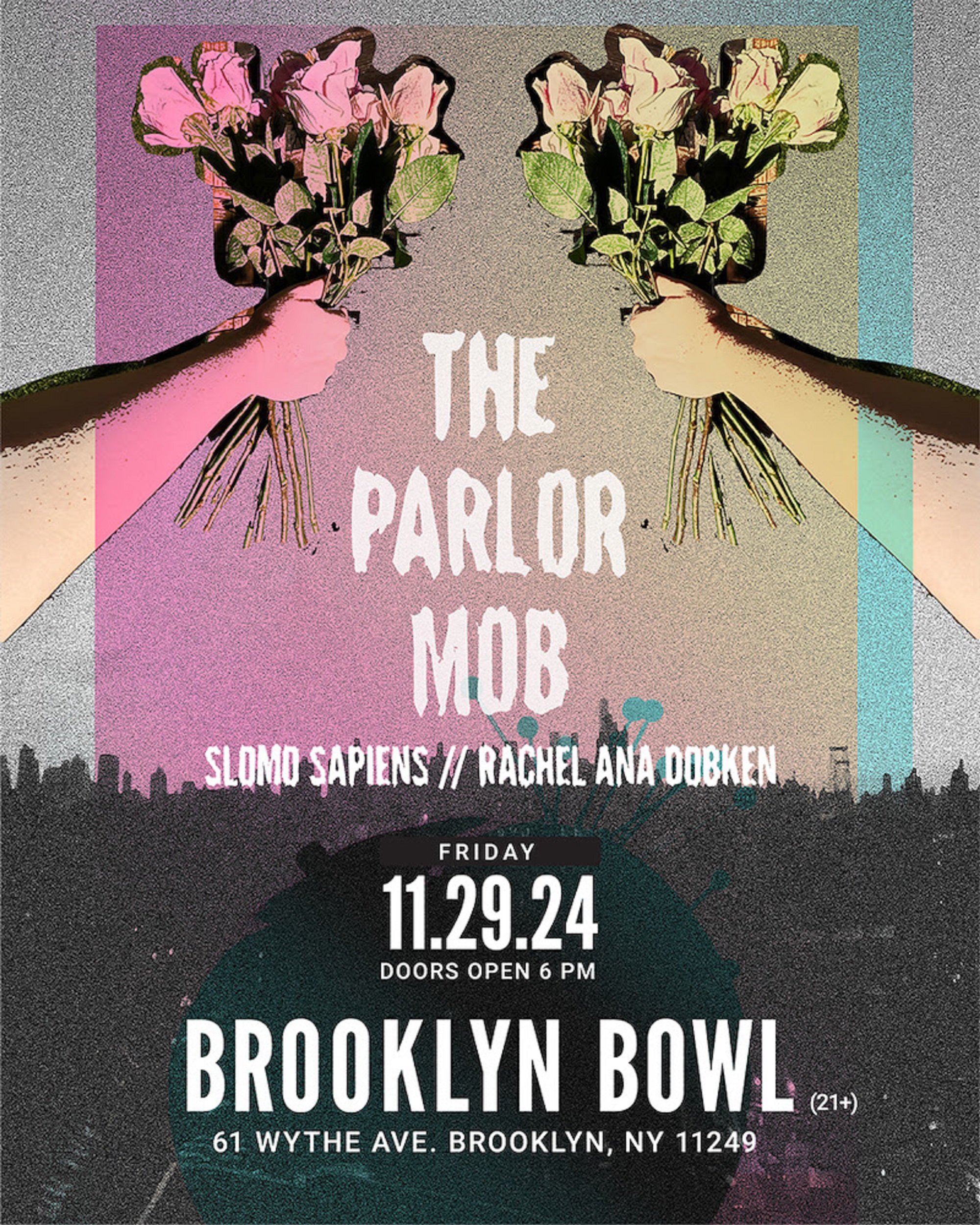
Fresh off of an 18-date tour and performing with Bruce Springsteen at Asbury Park's Sea Hear Now Festival in September, indie rocker / multi-instrumentalist Rachel Ana Dobken plays Brooklyn Bowl this Friday in support of The Parlor Mob.
On sharing the stage with Springsteen during Sea Hear Now's pre-fest kickoff party, Dobken says, "I was invited to play with Danny Clinch and Bruce Springsteen the night before at legendary Asbury Park club the Stone Pony. Danny and I spoke with Bruce before this special jam and we all agreed to do a cover of Little Walter's 'My Babe.’ To say it was a thrill and an honor is an understatement. Let’s just say I ended up sleeping 3 hours that night and waking up to play the festival in a blissful trance."
Dobken’s new album Acceptance was co-produced by Erik Romero of The Front Bottoms and Paul Ritchie of The Parlor Mob in conjunction with Dobken. The record features guest appearances from Blind Melon co-founder & guitarist Rogers Stevens as well as Preservation Hall Jazz Band saxophonist Clint Maedgen. It pulls from indie rock, psych and soul influences—think Angel Olsen, Jeff Buckley, Pink Floyd, Thin Lizzy, Beach House, boygenius, Rayland Baxter—while it charts a journey of authentic self-discovery
“Acceptance is a culmination of frustration, struggle, yearning and beauty that led me to the understanding that—whatever we are searching for, whomever’s love and approval we desire, whatever we seek on our journey—all answers come from within. From accepting and loving ourselves wholly for who we are, darkness and all. Accepting the circumstances of our realities, embracing them and leaning into them. There’s a comfort and a beauty in that. Acceptance always to what is and will be.”
Dobken (drums, guitar, vocals, keys, producer) is a powerhouse musician. Described as “My Morning Jacket meets Amy Winehouse,” she’s been featured at Relix, New Noise, Chorus FM, American Songwriter, Glide, WXPN, The Pop Break, Guitar Girl, RIFF, Broken Color, Last Day Deaf, Alt77, Grateful Web, The Aquarian Weekly & more. She worked closely with iconic music photographer Danny Clinch as music director of his Transparent Gallery in her hometown of Asbury Park, N.J., and has shared the stage with Bruce Springsteen, Pearl Jam’s Mike McCready, The Gaslight Anthem’s Brian Fallon, Rayland Baxter, Blind Melon, Incubus’ Ben Kenney, Robert Randolph, G. Love, Nicole Atkins, Tash Neal and many more.
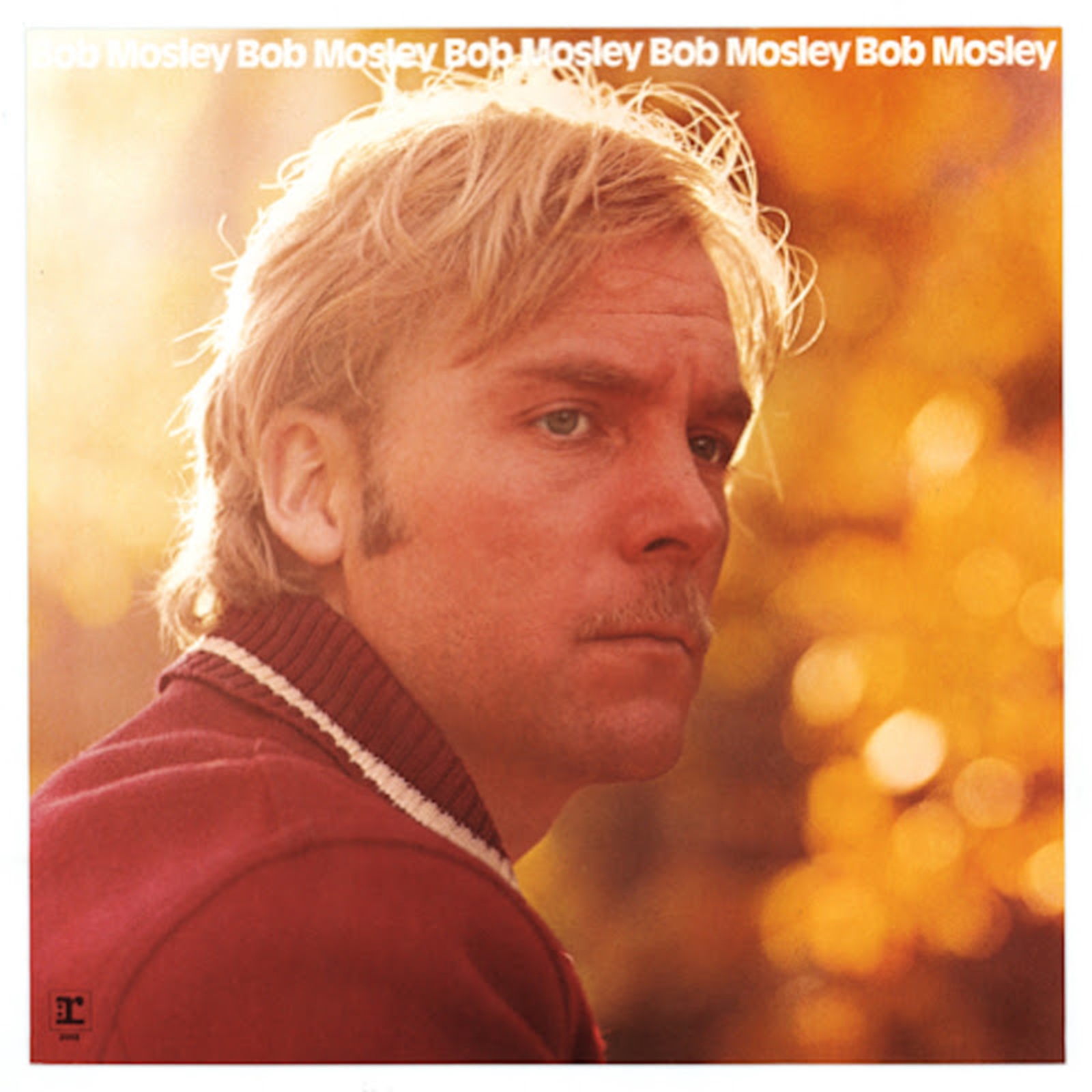
The influence of 1960s rock legends Moby Grape has long been acknowledged by a diverse range of artists, from Robert Plant and Little Steven to Beck, Chrissie Hynde, Cat Power, and Jeff Tweedy. The band’s five distinct songwriters created a timeless musical tapestry that continues to resonate with new generations. Yet, while Moby Grape’s legacy thrives, one of its most integral members—bassist and singer Bob Mosley—never received the recognition he deserved for his 1972 Warner Bros. solo debut Bob Mosley… until now.
Today, OMAD Records is proud to announce the long-awaited reissue of Bob Mosley, newly remastered and available on CD beginning December 6. The original sessions captured Mosley’s formidable musical vision at its peak. With raw, bluesy rockers like “The Joker,” the horn-driven soul of “Gypsy Wedding,” and the country-tinged yearning of “Thanks,” the album is a testament to Mosley’s vocal prowess and muscular bass playing. Supported by drummer Allen Wehr, guitarists Woodie Berry and Frank Smith, the Memphis Horns, and pedal steel from Ed Black, the record brims with energy and emotion—yet its initial release never achieved the widespread acclaim it deserved.
Enter singer, songwriter, and producer John DeNicola, a lifelong Moby Grape devotee who was inspired to give this unsung gem the sonic depth it always merited. DeNicola’s own track record includes co-writing the iconic hits “(I’ve Had) The Time of My Life” and “Hungry Eyes” for the Dirty Dancing soundtrack, earning him an Academy Award and a Grammy nomination. He also discovered the band Kara’s Flowers, which later evolved into Maroon 5. Through his boutique label OMAD, DeNicola has consistently championed artistry and authenticity.
Upon revisiting Bob Mosley, DeNicola was struck by the thinness of the original mix—particularly in the low-end frequencies. “It’s a record that should have soared, and I felt like the bass and drums deserved more presence,” he says. Though the original multitracks had gone missing, DeNicola obtained the master two-track DDP file from Warner Bros. and employed innovative “de-mix” technology and AI-driven separation tools. By isolating and rebalancing the rhythm section, DeNicola has finally brought out the warmth, depth, and groove that Mosley intended.
“I’m really happy with it,” DeNicola enthuses. “This record now sounds as it should have from the start—bolder, fuller, more alive. Bob Mosley’s talent always shone through, but now it’s presented as it was meant to be heard.”
In an era when physical media is experiencing a resurgence, OMAD’s reissue of Bob Mosley on CD—and potentially on vinyl—offers a fresh opportunity for both longtime fans and newcomers to discover this lost masterpiece. All profits from the release will go directly to Mosley himself, a former Marine who has faced personal challenges over his 81 years but remains a cherished figure in the rock pantheon.
“Bob’s doing well these days,” DeNicola notes. “With this release, listeners can finally understand and believe his worth, just like he asks on the opening track ‘The Joker.’ His voice, his bass, and his songs deserve this moment in the spotlight.”
For more information, or to order the CD, please visit OMAD Records.






